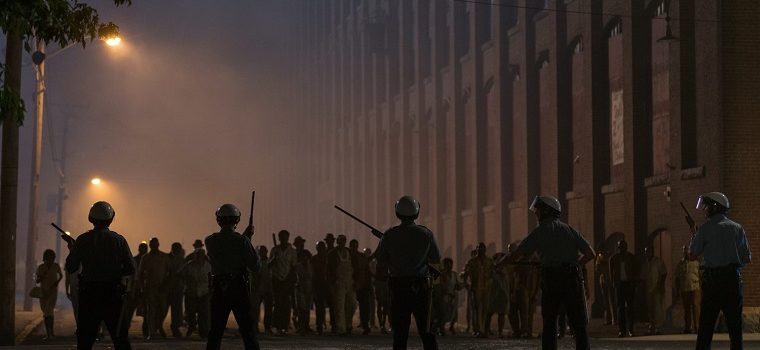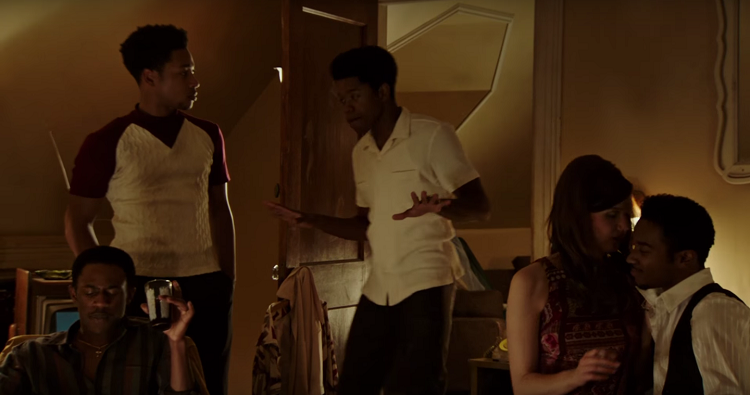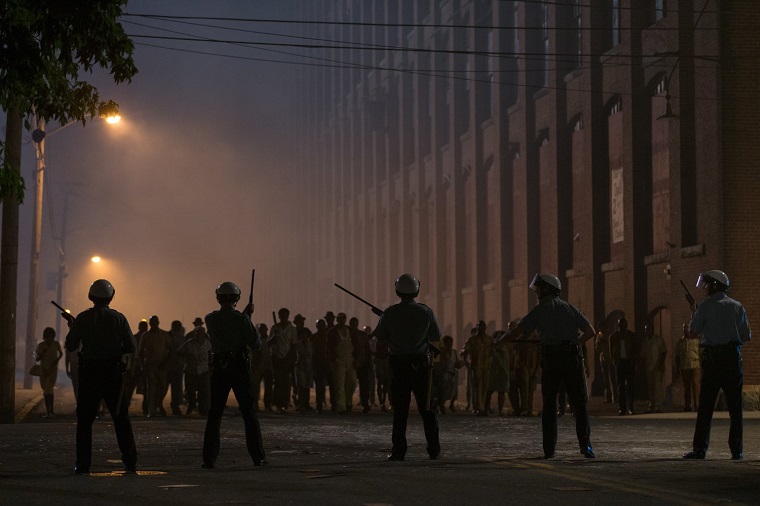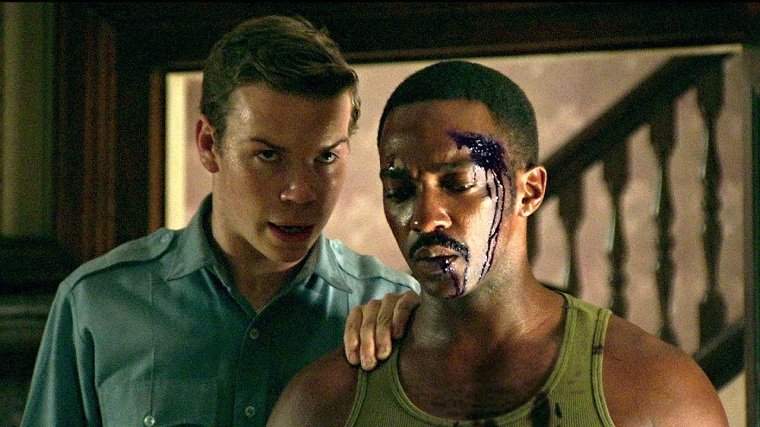Kathryn Bigelow has riveted audiences for years. But two of her most recent films — Zero Dark Thirty and The Hurt Locker — share a common thread, the theme of war. Her latest Detroit, in many ways, continues that trend. It chronicles one aspect of the 1967 riots that ravaged the Motor City and left parts of it smoldering in ash, both literally and figuratively.
The city felt like, and looked for all intensive purposes, a war zone during those summer weeks when the mostly all white police force cracked down on the African American populous, particularly in the area around the Algiers Hotel. It was there in this true story that numerous Detroit cops went from trying to keep the peace to bringing the brunt of the violence to a group that was staying in the hotel. What happened at the hotel would not just stoke the fire of revolt that was causing blacks to take to the streets in protest — it would dump gasoline on it and turn the entire conflict into a full blown inferno.
The story is an interesting one for Bigelow to tackle. One motivation has to be to bring to life to the issue and remind younger generations that, although it seems society has moved forward with the election of Barack Obama to two terms as President of the United States, on the ground little has changed in terms of police-citizenry relations for African Americans in this country. That is probably the aspect of experiencing Detroit that is the most infuriating. It is also frustrating because normally when experiencing a film that raises your ire, there is an inherent need to do something about the wrong, so that the viewer can feel that progress is being made.
With Detroit, the audience gets hit in the head with an emotional and cultural shovel and is honestly left a bit helpless. That is especially true given the current leadership of our government and a certain president’s recent opinions being expressed about how police should use more force towards those they are arresting.
But there is something to be done. Citizens can rise up and join in peaceful protest to demand change. It may seem relatively minor compared to the injustices seen on screen in Detroit and on the evening news in America 2017, but it is not. If enough voices are joined together, the chorus of dissent can bring about positive movement on this issue. But, it will take time. Detroit took place 50 years ago and as we all know, altering the system cannot happen overnight. We must persist.
The cast of Detroit is top notch and one can easily tell that each soul involved sought to go over and above what was required of them to bring not only justice to this story, but that hope that perhaps what they were doing means something. It could motivate a citizenry to demand more from law enforcement and make a wider swath of the populous aware of the injustice that needs to be turned on its head. Anthony Mackie, John Boyega (Star Wars: The Last Jedi), Algee Smith and Jacob Latimore anchor those souls who were grossly affected by the events of Detroit. They each served the real people they represent who endured that horrific time and do their experience justice in the most honorable and profound of ways.
The actor who may have had the wickedest of embodiments is Will Poulter (Maze Runner, We’re the Millers). He is Krauss, a young police officer. Krauss is largely responsible for setting these events in motion with his lack of regard for procedure at the least and deep seeded racism at the worst. As an enlightened individual, it must have gone against everything Poulter knows and feels to portray this man. But what Poulter does is astounding. When an audience’s loathing for you is at the blood boiling level, you as an actor have truly done your job and that is exactly what happens. He is the embodiment of ignorant evil, and that is the most damaging of type of malevolence.
Some have taken issue that Detroit needed to have a little more context inserted into Mark Boal’s script to bring a deeper cultural history to what we witness. Bigelow and her screenwriter brilliantly have an animated segment at the beginning of the film that puts things in perspective in an enlightening and efficient manner.
There was such a deep seeded animosity between the people of Detroit and those charged with policing them. Detroit captures that in an enraging fashion that leaves the most uneasy of feelings in the viewer as they exit the theater. Here’s a little hint… do not expect that sensation to leave your soul anytime soon. Channel it and use the film’s emotional powder keg to set of an explosion in yourself to go out into the world and become a force for altering our landscape in a meaningful manner.
Grade: A




